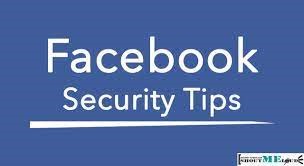One of the easiest ways to stay safe online is to understand how hackers work. Before we go, I suggest you read Harsh Tutorial on How to safeguard Facebook account for more safety advice.
FB Safety Tips
Online bullies, potential employers. These are just a few of the people you may wish to keep out of Facebook. Facebook is a terrific social networking site until you lose your job due to a drunken photo or your child is bullied by a classmate.
Look for It
Facebook has built-in security features, but they can be perplexing. To find them, go to Facebook’s Help Center, which will guide you through best safety practices and how to change your security settings. To access your account’s security settings, click “Account” (upper right of each page) and select “Privacy Settings.” You may modify your security settings, contact information, and applications from there.
Password
To keep your data safe, use a password that is hard to guess or steal. NASA suggests at least eight characters, including upper- and lowercase letters, numbers, and special characters like exclamation points or asterisks to avoid cyber attacks like social engineering and session hijacking. Don’t tell anyone your password. To be safe on Facebook, just follow these two basic actions.
Smart Passwords for Online Security
When utilizing a public computer, enable HTTPS and utilize an online virtual keyboard to input your Facebook password.
Facebook Privacy Basics
Be cautious about how much information you reveal about yourself and with others. Without stringent privacy settings, anyone can view your Facebook profile. To be safe, do not share your personal information on Facebook with strangers.
Also, when upgrading your status, check your privacy settings. Also, the new Facebook timeline makes it simpler to peruse old status updates, so choose “Limit the audience for past posts” to make all old status updates private. This option is included in your privacy settings. (See image above)
A Facebook list can enable you select extra privacy settings for your status update.
Would You Hire Him?
The Internet, especially social networking sites, has given employers, college officials, and others with influence over your future unprecedented access to you. Not only a résumé or college application. Sure, you’ve undoubtedly done it – and they do – typed someone’s name into a search engine.
You don’t want your Facebook profile to cost you a job or cause you to be rejected from a school. In other words, don’t write or publish things you wouldn’t want strangers to see, and untap yourself in unfavorable photos your pals share of you.
Notify
Using a fake name on Facebook is against the Terms of Service, therefore anyone may find you. Your Facebook profile and messages can be blocked by such people. To stop unwanted or improper messages from other users, you should report the sender to Facebook.
Like any other social networking site, and the Internet in general, much of your information is public. It’s up to you to use Facebook’s features to safeguard yourself and your kids. The basic guideline is: don’t post it if you don’t want others to know.


